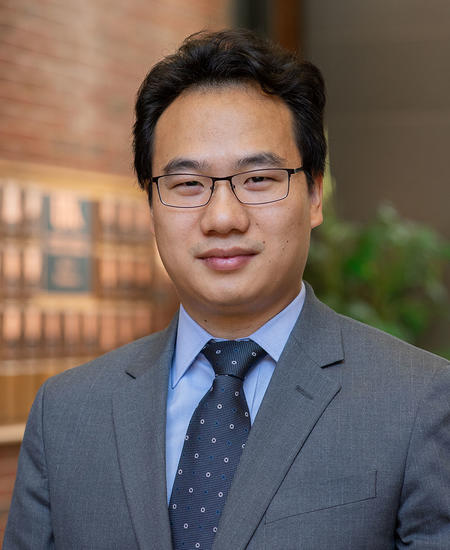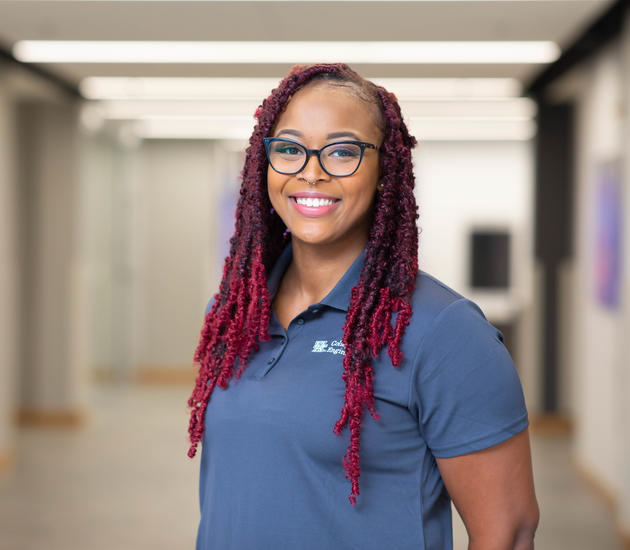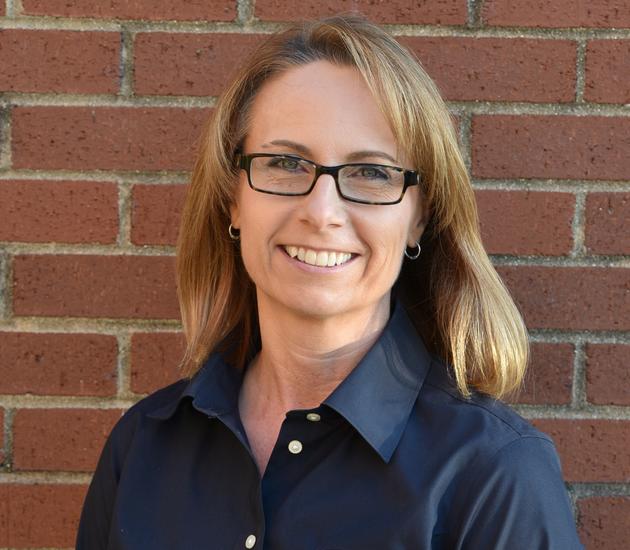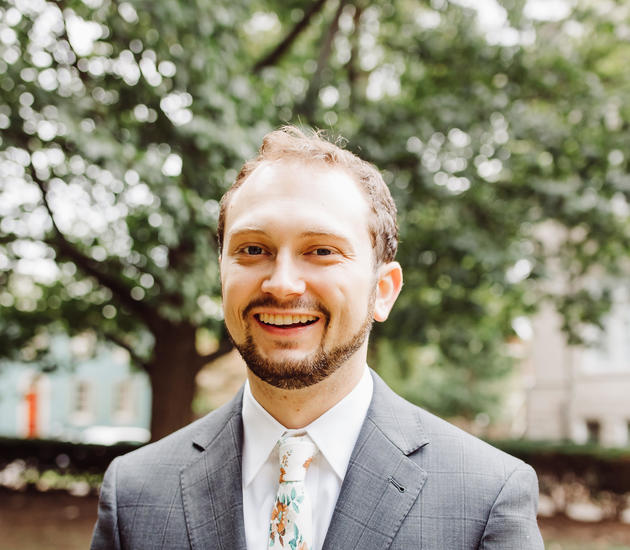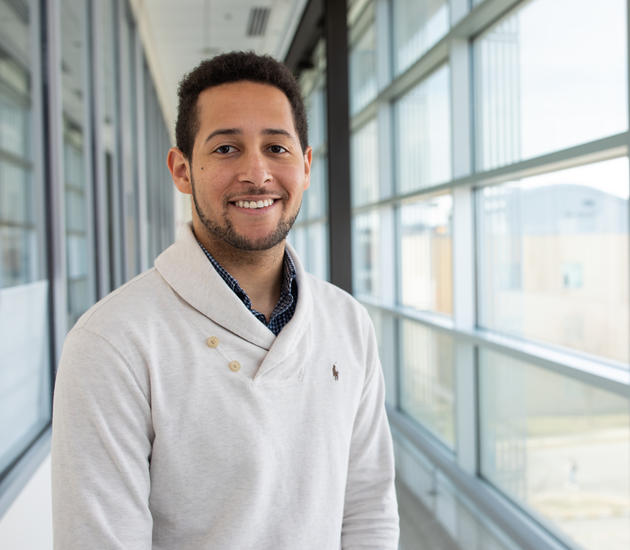Caigang Zhu, Ph.D., joined the F. Joseph Halcomb III, M.D., Department of Biomedical Engineering this fall as assistant professor. Prior to joining UK, he was a postdoctoral fellow in the Department of Biomedical Engineering at Duke University. To get to know Dr. Zhu better, we present you a short interview with him on his research interests and his life’s mission.
We are so glad to have you join the F. Joseph Halcomb III, M.D., Department of Biomedical Engineering. To help colleagues and students to learn more about you and your research, can you tell us something about yourself, your research interest and expertise?
I am a bio-photonics scientist and I am interested in developing and applying novel optical technologies to advance translational cancer research. I have over 10 years of experience in optical spectroscopy, spectral imaging and Monte Carlo modeling-based data processing algorithms, as well as microscopy, translational cancer research and cancer metabolism imaging. I earned my Ph.D. from Nanyang Technological University in Singapore. After that, I moved to Duke University where I worked on tumor metabolism imaging during my postdoctoral training. At UK, I will develop a research program in which novel optical devices and techniques are applied to physiological sensing of the tumor metabolism and vascular microenvironment for the purposes of identifying or evaluating therapeutic targets in animal models.
Would you give some brief highlights of the most exciting part of your research work? What impact would you like to make in terms of helping people and improving quality of life?
For the first time, our optical technology provides a systems level approach to image metabolism and the associated vasculature in vivo at cellular level resolution. Being able to quantify tumor bioenergetics in a live tumor microenvironment and being able to look at evolution of disease in the face of transient stress is an important new direction. The new capabilities that our technology is poised to offer will have the potential to address many important questions in the cancer biology field. Using our optical technologies to investigate metabolic pathway in tumors and to exploit them for cancer research within the context of organoids and PDX models will potentially provide improved therapeutics with the ultimate goal of reducing cancer morbidity and mortality and optimized treatment options with the ultimate goal of reducing overtreatment and medical care cost.
Looking ahead, what challenges do you see in realizing the impact you would like to make through your innovative research?
Sometimes it is challenging to find space for new medical technology to grow given that people are already used to traditional medical devices. Consequently, it takes longer than anticipated for new medical technologies to be accepted by public.
As you are aware, UK has a unique academic infrastructure in terms of promoting biomedical research and healthcare treatment technologies. How would you like to contribute to promote in-depth engineering-medicine integration at UK?
My group will work closely with highly respected experts from the Markey Cancer Center. I would like to mention that NIH launched a new center for cancer metabolism (CCM) at UK in 2017 with an initial $11.1 million in support. My lab is honored to part of the CCM. Our group members will work closely with cancer biology experts from CCM to study tumor metabolism reprogramming and their role in therapeutics resistance development.
Prior to joining UK, you have been busy in submitting a research proposal. What do you hope to achieve in your work to move the technologies you are developing closer to benefit patients?
Through working with the Markey Cancer Center, I submitted my first COBRE grant application. I was selected as the COBRE CCM project leader finalist. I envision that we will be able move our techniques to a clinical setting soon, where we can predict and prevent tumor recurrence, thereby saving patients’ life.
How would you like to help students who are interested in biomedical engineering advance their learning and their career?
I would encourage any student who is interested in BME to visit research labs. Get involved in the cutting-edge research projects. It is always good to keep your mind open to learn new knowledge.
Is there any advice you would give to students or postdocs that you wish someone had given you when you were a student or postdoc?
Choice is more important than effort. I was lucky that my former advisors helped me identify the best fit for my career direction.
What do you like to do outside your work? Any hobbies or leisure interests?
I like hiking and fishing. I enjoy the peace of nature with my family members.
